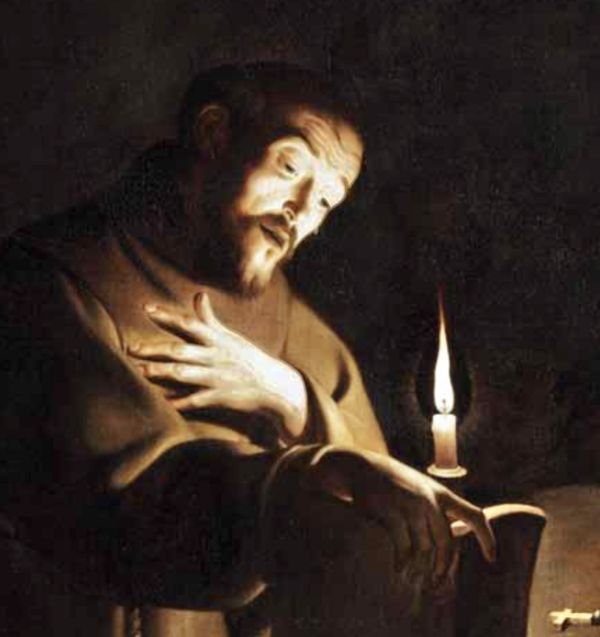Mt sets before us the malice of the leaders who want to eliminate Jesus, set against the holiness of the Servant of God, who heals every sickness.
The Spirit of God is present in the Son, Power through which even his intimates will proclaim righteousness to the nations.
Francis of Assisi was truly the son upon whom the Spirit of the Lord had descended, the Father's favourite, who by his humility and hiddenness shone in the eyes of the brothers and the world.
The brothers, who had seen him pray, had no doubt that on Francis rested "the Spirit of the Lord [...] in all its fullness [...] therefore the surest thing for them was to follow his doctrine and his life" (FF 1071).
"The Spirit of the Lord, who had anointed and sent him assisted his servant Francis, wherever he went, Christ himself assisted him [...].
It was his word, like a burning fire, that penetrated the depths of the heart [...] It had the perfume and the breath of divine revelation".
(FF 1210).
And the Sources relate an episode that exudes Spirit and service from all sides; a Poor Man willing to be truly the Servant of God, as Jesus had taught him.
"While he was staying in a cell in Siena, one night he called his sleeping companions to him:
"I invoked the Lord," he explained to them, "that he might deign to show me when I am his servant and when I am not. For I would like to be no other than his servant. And the Lord, in his immense kindness and deigning, answered me now:
"Acknowledge yourself my servant truly, when you think, say, act holy."
"For this reason I have called you, brothers, because I want to blush before you if at times I have failed in these three things" " (FF 743).
For this reason Francis, in the footsteps of Christ in whom the Father was pleased, was also the servant and witness sent to heal and proclaim the Kingdom.
The Minim too, informed by love and not by Pharisaic legalism, was able to work wonders in the service of salvation.
«Behold my servant, whom I have chosen, my beloved» (Mt 12:18)
Saturday of the 15th wk. in O.T. (Mt 12,14-21)












